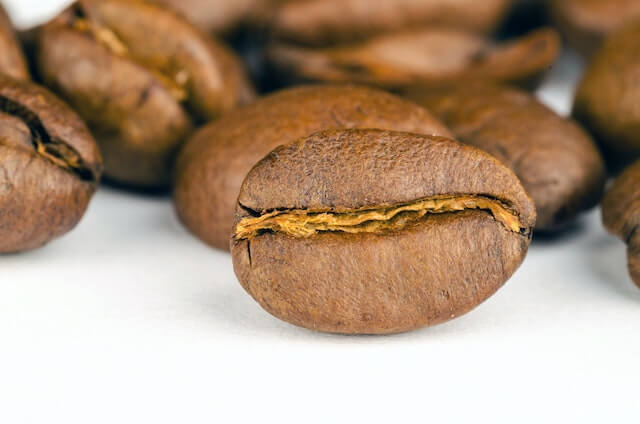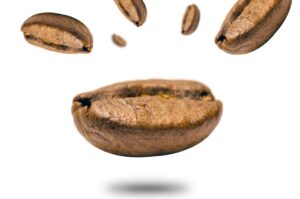You’ve probably had your morning cup of coffee, or maybe you have a can of energy drink close by. But have you ever stopped to think about what exactly is in these drinks that makes them so popular? The answer is caffeine. Coffee, energy drinks, tea — these all contain some amount of this mysterious substance that can give us an extra jolt of energy when we need it. Let’s take a closer look at what is caffeine.
What is Caffeine?
Caffeine is a naturally occurring chemical compound found in plants part like coffee beans, tea leaves, cocoa beans, and kola nuts. It works by blocking the neurotransmitter adenosine from binding to its receptors in our brains. When adenosine binds to these receptors, it causes us to feel sleepy and lethargic, but when caffeine blocks it from doing so we stay awake and alert instead. This is why caffeine has become such a popular way for people to get their daily dose of energy.
How Much Caffeine Should I Have?
The amount of caffeine someone should consume varies from person to person depending on factors like age, body weight, and overall health. Generally speaking though, the consensus seems to be that adults should not consume more than 400 milligrams (mg) per day. That may sound like a lot but consider that one 8-ounce cup of brewed coffee contains around 95 mg of caffeine while one 12-ounce can of soda contains around 40 mg. So if you plan on having more than four cups of coffee or 10 cans of soda per day then you could be putting yourself at risk for negative side effects due to overconsumption such as headaches or insomnia.

How Does Caffeine Work?
When we consume caffeine, it quickly enters our bloodstream and travels to our brains where it binds to adenosine receptors thus blocking them from releasing their natural sedative-like chemicals that make us feel tired or sleepy. This action then triggers the release of adrenaline which increases heart rate, blood pressure, and metabolism while also providing a boost of energy to help us stay alert throughout the day. At this point, caffeine also triggers the release of dopamine which helps improve focus and concentration while also creating feelings of pleasure or satisfaction when consumed in moderate doses.
How Much Is Too Much?
The amount of caffeine required to produce these effects can vary from person to person depending on individual tolerance levels but generally speaking, experts suggest consuming no more than 400 milligrams per day for adults – about four or five cups of coffee – although some studies suggest that up to 600mg per day might be safe for healthy adults with no underlying health conditions or sensitivities. It’s important to remember that too much caffeine can lead to jitteriness, anxiety, headaches, and other unpleasant side effects so moderation should always be practiced when consuming caffeinated beverages or foods containing caffeine such as chocolates or energy drinks.
What Caffeine Can Do For You?

Caffeine is a naturally occurring stimulant that can be found in many of our favorite beverages, such as coffee, tea, and energy drinks. It is widely used to boost alertness and improve concentration. But what benefits does caffeine offer? Let’s take a look at some of the ways caffeine can help you get through the day.
Increased Alertness
One of the most well-known benefits of caffeine is its ability to increase alertness and reduce fatigue. This makes it an ideal choice for those moments when you need an extra burst of energy to get through the day. Caffeine works by stimulating your central nervous system, increasing your heart rate and blood pressure, which in turn gives you more energy. It should be noted that too much caffeine can have negative side effects, including increased anxiety, restlessness, and insomnia, so it’s important to keep your consumption in moderation.
Improved Concentration

In addition to its energizing effects, caffeine also has been shown to improve concentration. If you’re feeling foggy or having trouble focusing on a task at hand, a cup of coffee or an energy drink could be just what you need to get back on track. Research suggests that caffeine helps increase dopamine levels in the brain, which can lead to improved focus and better performance on tasks requiring attention or problem-solving skills.
Enhanced Physical Performance
Caffeine may also have performance-enhancing effects for athletes and other physically active individuals. Consuming caffeine before exercise can provide a boost in physical performance by increasing power output and endurance while decreasing perceived effort during strenuous activities like running or weightlifting. Many professional athletes use caffeine as part of their training regimen as it provides an extra edge when competing against other top athletes.

The Impact of Caffeine Withdrawal on Your Body
Caffeine is one of the most widely used substances in the world. It’s found in coffee, tea, energy drinks, and a variety of other food and beverages. Many people rely on it as part of their daily routine to get them through their day. But what happens to your body when you stop taking caffeine? Let’s take a look at how caffeine withdrawal affects your body.
Caffeine is a stimulant that impacts your central nervous system, helping you stay alert and focused throughout the day. When you stop taking caffeine, your body begins to go through withdrawal symptoms which can include headaches, fatigue, difficulty concentrating, irritability, and depression. These effects can last anywhere from two days to two weeks depending on how much caffeine you were consuming before stopping.
The severity of these side effects can vary depending on the individual as well as how long they have been consuming caffeine. For example, if an individual has been drinking coffee every morning for years and then suddenly stops cold turkey they are more likely to experience more severe side effects than someone who only recently started drinking coffee or tea with caffeine in it. Additionally, people who consume large amounts of caffeine daily will experience more intense withdrawal symptoms than those who consume smaller amounts regularly.
To avoid or reduce the intensity of these side effects it is important to gradually reduce your intake of caffeinated beverages rather than quitting abruptly. This will give your body time to adjust and minimize the severity of the withdrawal symptoms that you experience. It is also important to stay hydrated as dehydration can worsen headache symptoms associated with caffeine withdrawal so make sure you are drinking plenty of water throughout the day!




